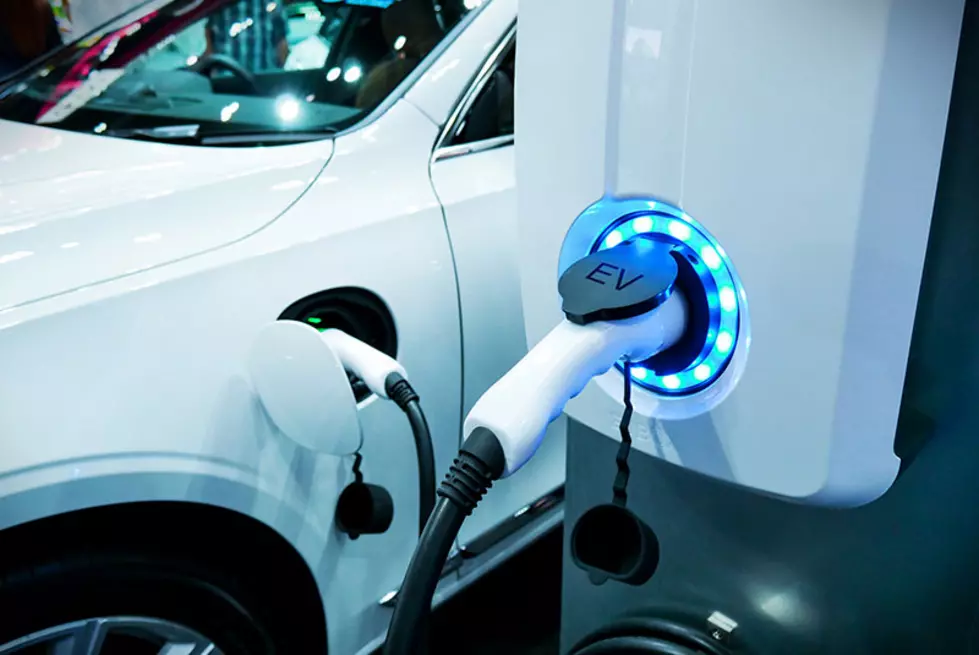
Bill would create gas tax equivalent for electric vehicles
Caven Wade
(UM Legislative News Service) A bill moving through the Montana Legislature would add an annual fee to all completely electric vehicles in the state.
Rep. Denley Loge, R-St. Regis, is sponsoring House Bill 60 which would add an annual fee for each electric car to substitute for the gas tax that drivers of fuel-powered vehicles pay at the pump.
“I talk about this being taking away a free ride, and right now we have a gas tax that pays for some of the fees that go to fixing our roads, and we get some match money that comes along with this,” Loge said.
The bill passed the House of Representatives 92-8 on Jan. 25 and moved to the Senate, where the Senate Business, Labor and Economic Affairs passed it to the full Senate on a unanimous vote on Thursday, Feb. 17.
Loge said in the Senate committee hearing for the bill that because electric vehicles aren’t using gasoline, owners of the vehicle aren’t paying into the gas tax fund that helps support transportation infrastructure throughout the state.
The bill would also make it so that when an electric vehicle is licensed with the state there would be an additional fee. The fee charges vary based on the type of car that is being licensed under this distinction, and could vary from $130 to over $1,000 depending on weight. The annual fee would also be smaller if the car is a hybrid and uses gas in some capacity.
“It’s not to punish anyone, it’s just to get so everyone is paying their fair share, it’s a road-use fee,” Loge said.
Duane Williams, executive director of the Montana Trucking Association, said in support of the bill that the trucking industry currently pays nearly half of the fees that go toward Montana roads, and that his organization is interested in everyone who uses the state's roads paying their fair share.
John MacDonald, representing the Alliance for Automotive Innovation, also spoke in support of the bill, saying that his alliance supplies between 90% to 95% of the vehicles that are on the state roads, and that they worked with the sponsor to make sure the fees were fair.
“We are typically not cheerleaders or champions of legislation that increases, or puts a new fee on our products, however, what we really are concerned about is making sure that electric vehicles do pay their fair share, and ensuring that the method that is brought forth in each of the states is fair,” MacDonald said.
MacDonald said the $190 fee for the level-two vehicles in the bill is a little higher than his association would like to see, but it is not unfair or egregious.
HB 60 had three other supporters testify who shared the same sentiments that electric vehicle owners should pay their fair share for road use without paying the state's gas tax.
Ian Lund, representing the Montana Environmental Information Center, opposed the bill, saying that the fee numbers calculated are a little high.
“If you look around the region for example, you can see North Dakota has a $120 fee for electric vehicles compared to our $130. Utah only has $90 and no escalation for higher weight vehicles,” Lund said.
Lund said that electric vehicles should not have to pay a basic gas stax equivalent because cars that are more eco-friendly and get better gas mileage already pay less in gas tax per year.
“I think EV’s are still a new product, we don’t necessarily need to be adding this tax, which is also not really in line with the gas tax where you pay less gas tax the more efficient your vehicle is,” Lund said. “These types of vehicles are still very much coming out, and are not at cost parody with internal combustion engine counterparts, and adding these fees to an already expensive technology is harmful to their adoption.”
Lund also said that the registration fee is a blunt instrument because many electric vehicles with smaller batteries won’t travel the distance each year that the fee numbers were equated with.
